The apprentice
As featured on BBC Look East, for National Apprenticeship Week, our president Professor Sir John Holman visited LGC in Fordham, Cambridgeshire, to meet their apprentices and try out some of the practical work they do every day.
I knew I didn't want to go to university; I didn't want to move away. I was ready to start a career but I knew I wanted a degree so I thought an apprenticeship was the best option for me.
Jenny Meacock, first year apprentice at LGC
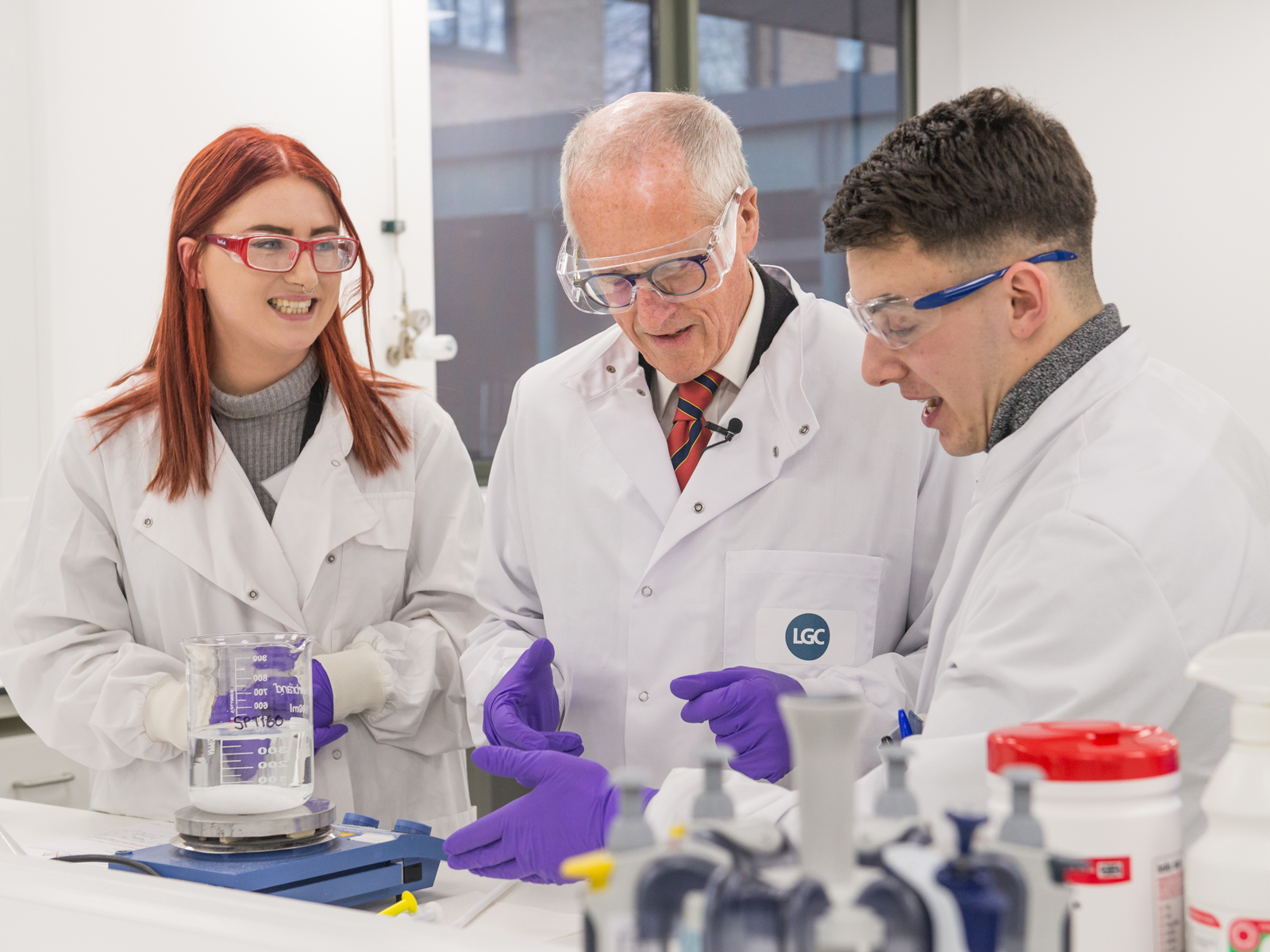
Picture: © Royal Society of Chemistry/Richard Stonehouse
Jenny’s story will be familiar to many students considering their post-16 education options. She took a BTEC course in forensic science at West Suffolk College and was encouraged to apply for the apprenticeship programme at LGC, an international leader in the extended life sciences sector. Jenny started her Level 5 Higher Apprenticeship in Chemical Science for Industry in September last year and she hasn’t looked back since.
“I love it. I know some people go into work and dread it but I never have that feeling, I'm always enjoying it when I'm here. They don't treat you like you know less than anyone else; you're instantly treated as an equal.”
Jenny is one of 16 apprentices who our president Professor Sir John Holman met at LGC in the run up to National Apprenticeship Week, to hear how apprenticeships are working for both the company and the students they train.
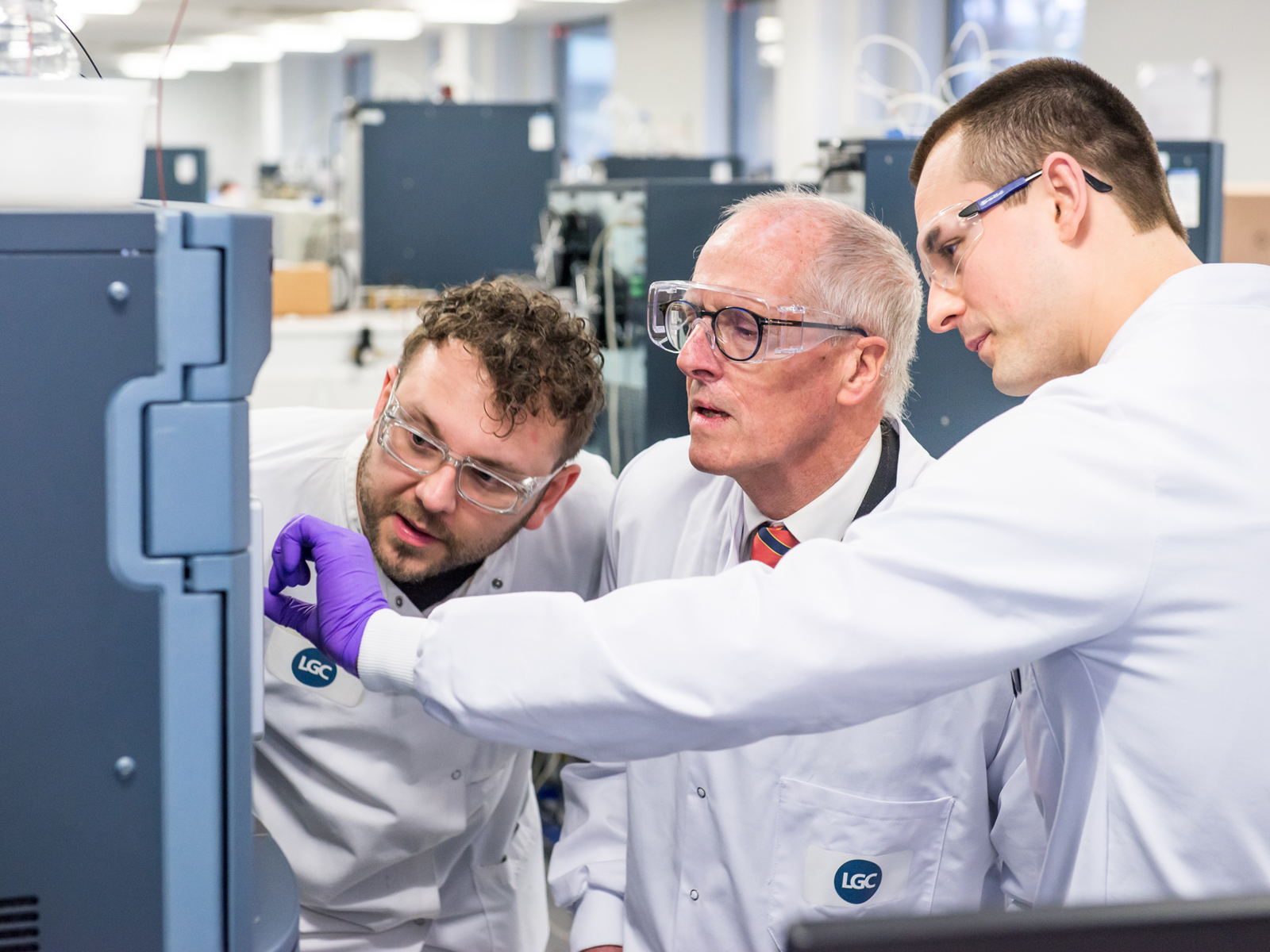
Graduated apprentices Daniel Beasley (left) and Tom Howard (right) are now qualified scientists Picture: © Royal Society of Chemistry/Richard Stonehouse
“It's an important way into science – skills are really important for organisations like ours,” explains Dr Derek Craston, chief scientific officer at LGC. “We do complex things that need good technical knowledge and good practical knowledge. The conventional route of just going through school and going onto university, works for some people, but it doesn't work for all.”
Building technical skills
The LGC site in Fordham has over 350 employees, with many of these young scientists embarking on their first job in the scientific industry. On this site, LGC provides analytical services for drug development and sports supplement testing, with apprentices able to work across both of these departments, developing highly specialised technical skills.
“It’s been fascinating,” said Sir John. “I've been meeting apprentices and talking about the way that they're trained. I knew that was important because we need people with technical skills in the chemical sciences. But the really interesting thing is the relationship that the apprentice, who is a technician, has with the equipment that they work with and the intimate, detailed working knowledge that they develop. Without that intimate knowledge the machine is useless – it's just a machine.”
As well as chatting to the apprentices and taking a tour of their labs, Sir John was put to the test and volunteered to carry out a typical activity that an apprentice would do day-to-day. Jenny and her fellow higher apprentice Renato talked Sir John through the process and showed him the checks and paperwork necessary to ensure they carry out their tasks to the highest standard.
“I really enjoyed it,” said Jenny. “We went over it earlier with Vicky our manager and I thought it was a lot more calming doing it with Sir John. It passed, so he must have done a good job!”.
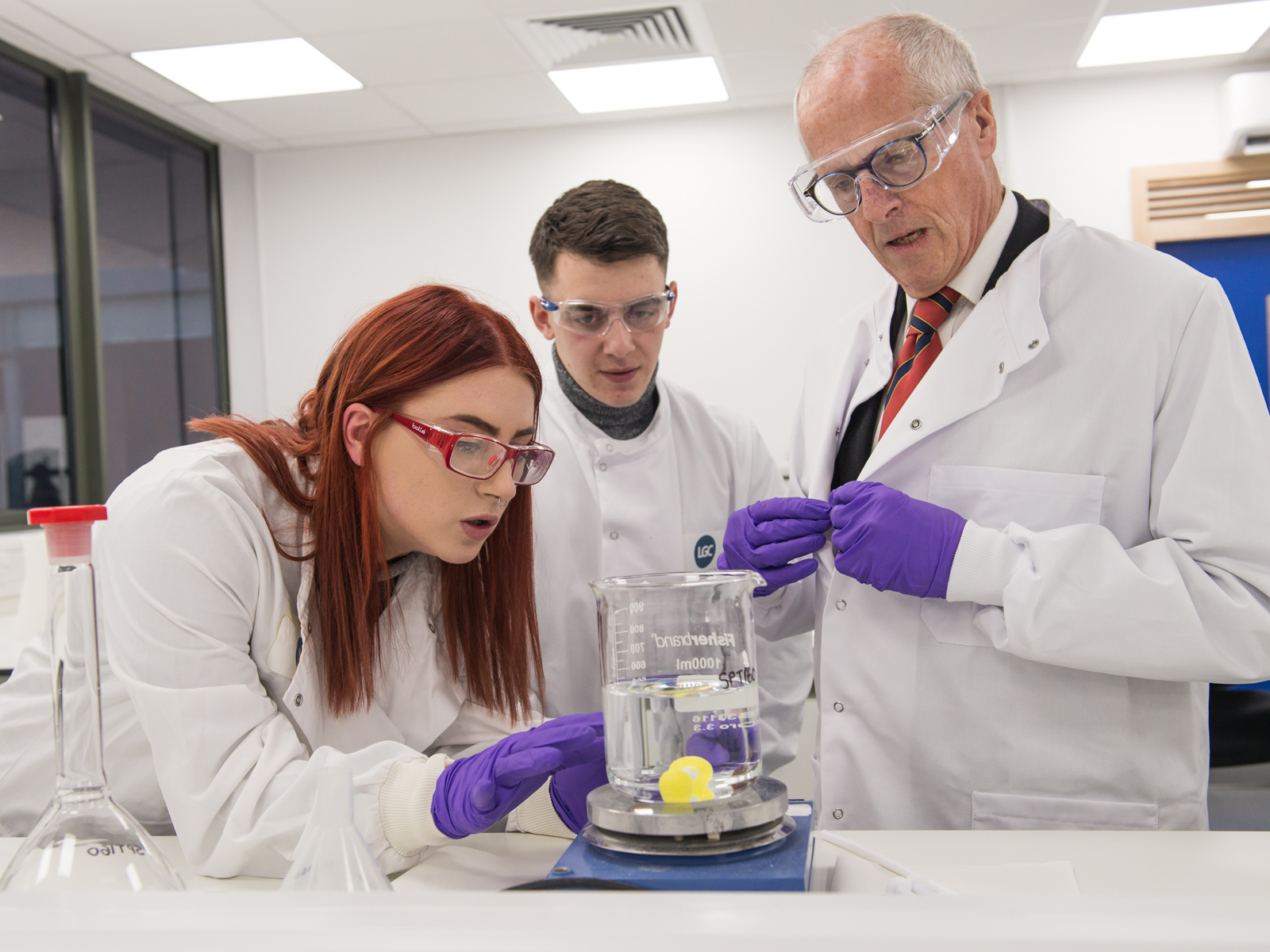
Apprentices Jenny Meacock (left) and Renato Junior (centre) show Sir John Holman how to make a standard buffer solution Picture: © Royal Society of Chemistry/Richard Stonehouse
Professional recognition
LGC has been running a successful apprenticeship programme since 2012, working with CSR Group, a training provider that specialises in scientific apprenticeships.
We accredit the training programme that CSR Group deliver with LGC, through a collaborative partnership, which means that all of the apprentices who graduate from the programme can receive registered status. The registers are competence-based designations that demonstrate a high standard of professional practice and commitment to further skills development. Advanced apprentices working on an accredited course receive Registered Science Technician (RSciTech) and higher apprentices receive Registered Scientist (RSci). Our partnership with CSR is one of nine agreements we’ve established with apprenticeship training providers across the country.
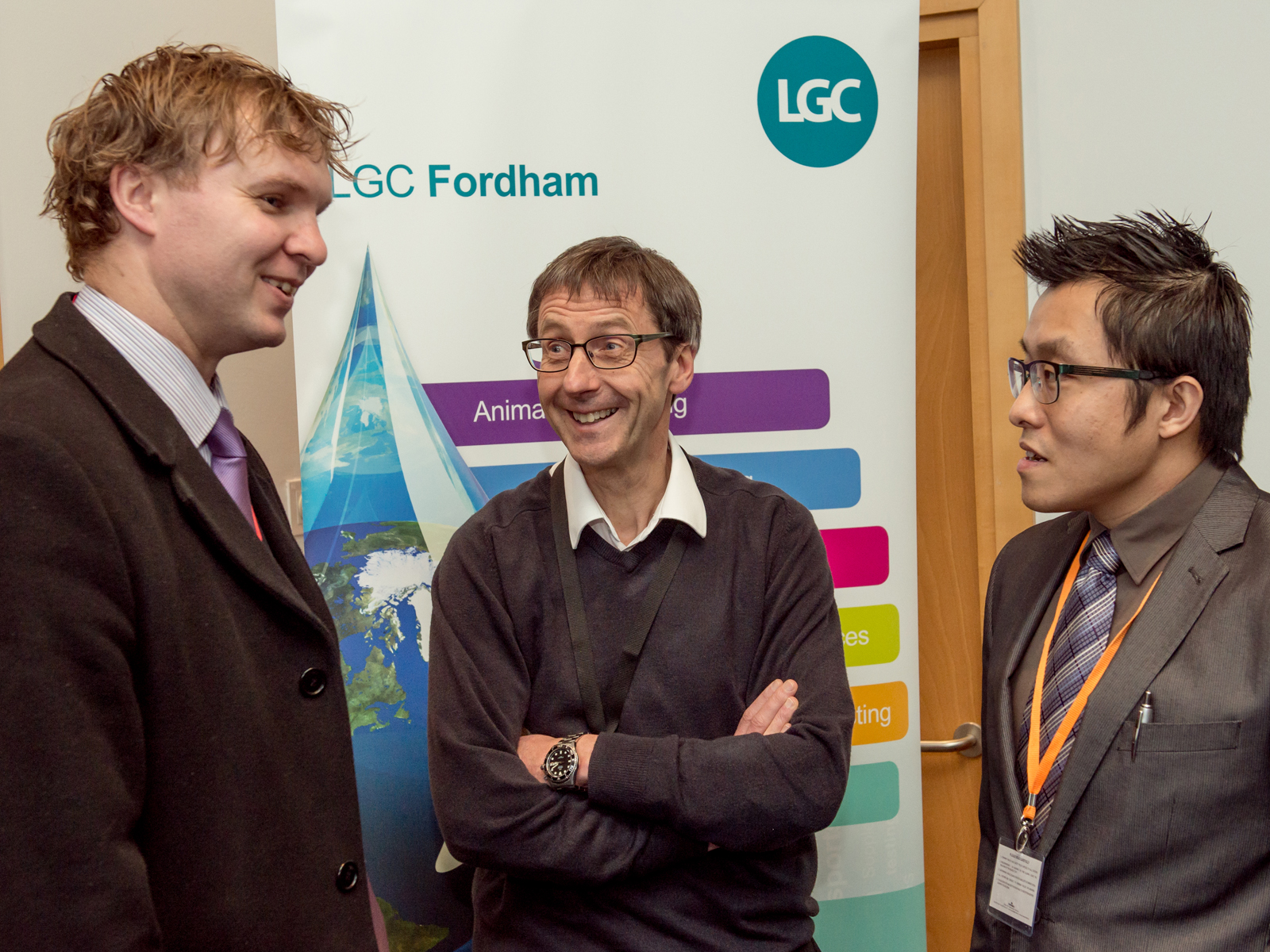
Our vocational skills programme manager Richard Holliday (left) with Derek Craston (centre) and Danny Ho (right) Picture: © Royal Society of Chemistry/Richard Stonehouse
“Everyone gets RSciTech on their apprenticeships and then once we graduate we’re looking to work towards RSci,” explains Amy Rogers, who graduated from her apprenticeship in October last year and now works as a qualified scientist at LGC.
Dr Danny Ho, business development manager for applied science at CSR Group, delivers the apprenticeship training programme at LGC and values the support and guidance of our collaboration agreement.
“The accreditation between LGC, CSR and the Royal Society of Chemistry really helps us because it gives us credibility whenever we deliver a programme and means that we can give learners RSci or RSciTech registration – a mark of competence for the apprentices. It's great for them personally and for their CVs because employers really value professional registration.”
Getting a foot in the door
The opportunity to build work-based skills in a hands-on learning environment is what draws many young people to take on an apprenticeship. Tom Howard graduated from LGC’s apprenticeship scheme three years ago and now works in their bioanalysis lab. He started his apprenticeship after completing a university degree in sport science, in order to develop practical, transferrable skills. “I wanted the opportunity to learn on the job and develop skills in a new area. When you go to university you gain a lot of theoretical skills but you don't have the practical skills. I thought this was a good way in to get some experience of the industry.”
“I plan to stay here as long as possible and work my way up the ladder,” says second year apprentice Liam Morrissey. “It gets your foot in the door. Employers really value experience in the field which apprenticeships grant you.”
“That's what has really struck me, as well as the enthusiasm of these young people for what they're doing and their understanding of where they fit into the system,” said Sir John. “They work with a machine with a certain set of procedures, but whenever I asked them about how this fits into the world of horseracing or athletics supplements, they knew and they could see the importance of their work. It's a credit to LGC that the company not only trains their apprentices to have the technical skills to make delicate, complex machines work but also shows them the relevance of the wider world that they're working in.”
Further information
We’re offering current apprentices, who work in the chemical sciences, access to our membership for just £10. The offer is available for the duration of the week and will enable apprentices that aren’t currently members to join our membership community as Affiliates. Email us at [email protected], quoting ‘National Apprenticeship Week’ in the subject, to find out more.
Visit the National Apprenticeship Service website to find more events taking place for National Apprenticeship Week, and join the conversation on social media with #NAW2018.
You can find out more about the apprenticeship programme at LGC Fordham at their open day on 19 April.
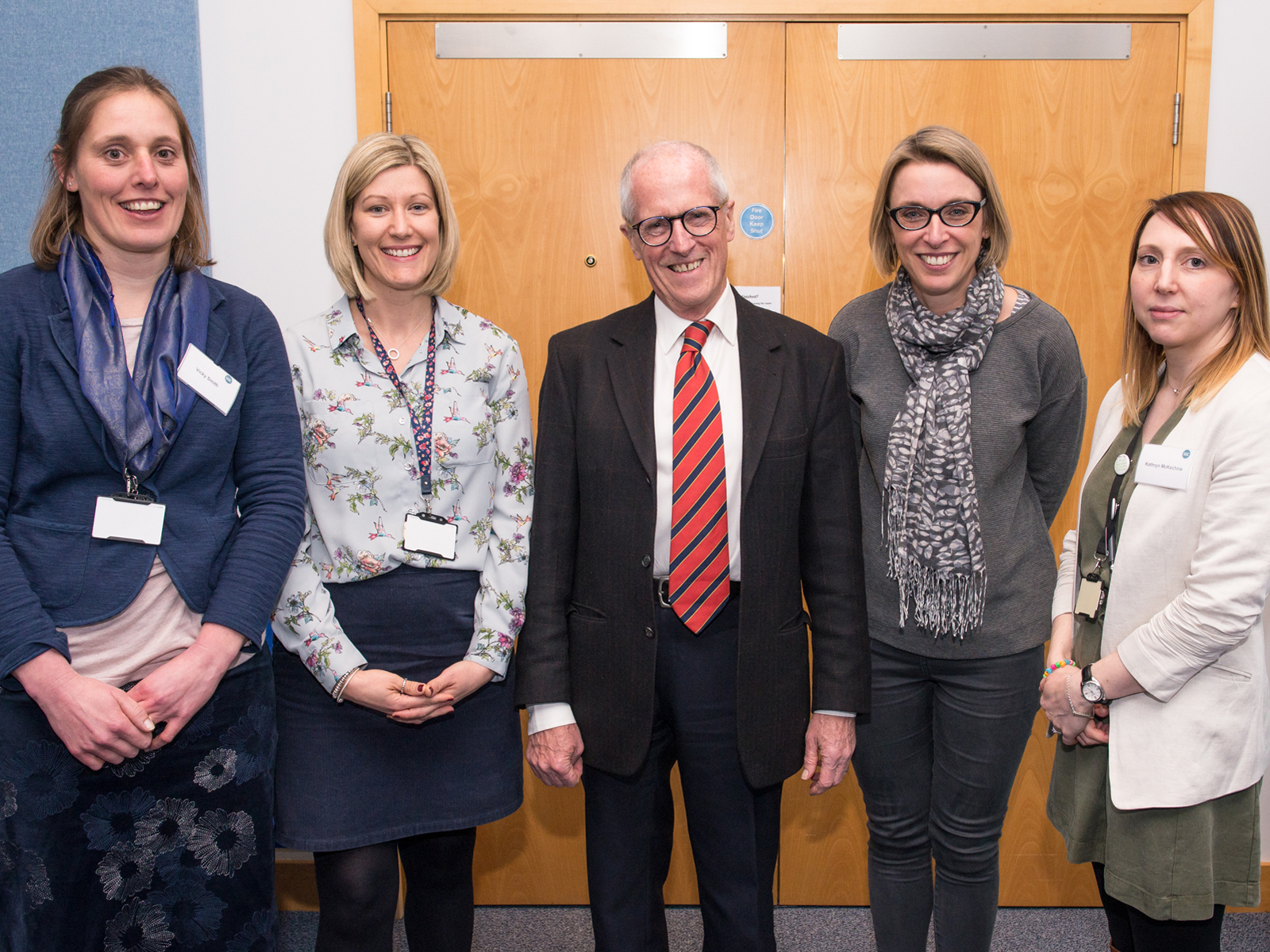
From left to right: Vicky Smith, team leader at LGC; Katie Wheeler internal recruiter at LGC; Sir John Holman; Sarah Pool, HR manager LGC; Kathryn McKechnie, team leader LGC Picture: © Royal Society of Chemistry/Richard Stonehouse